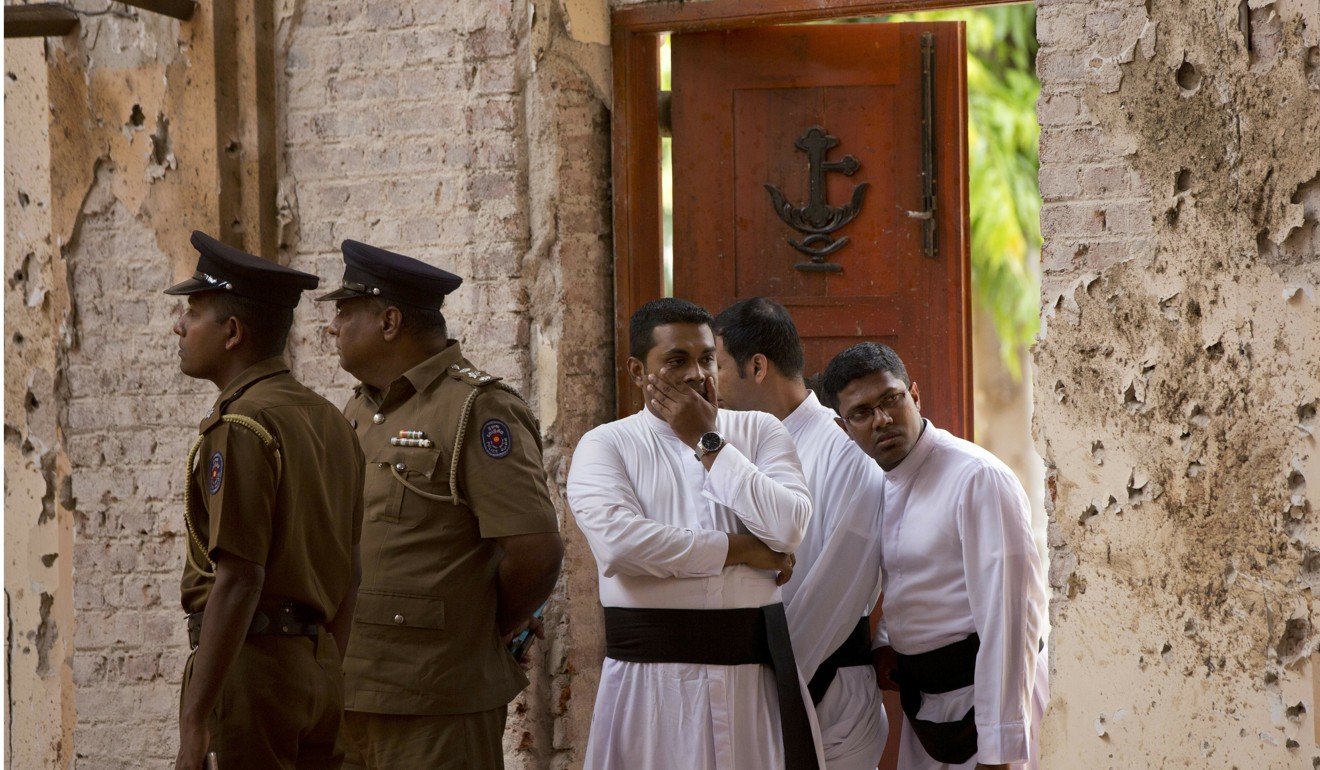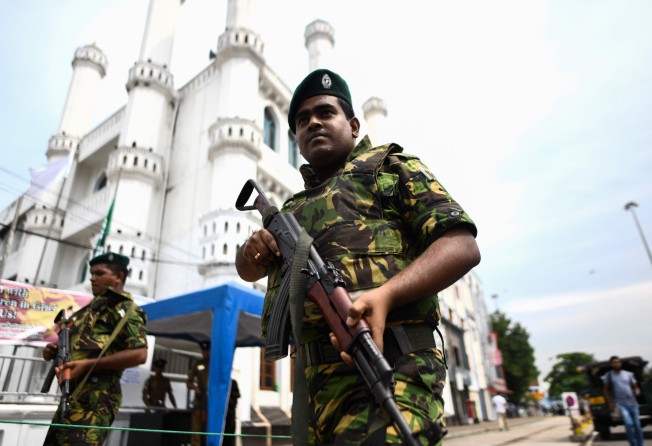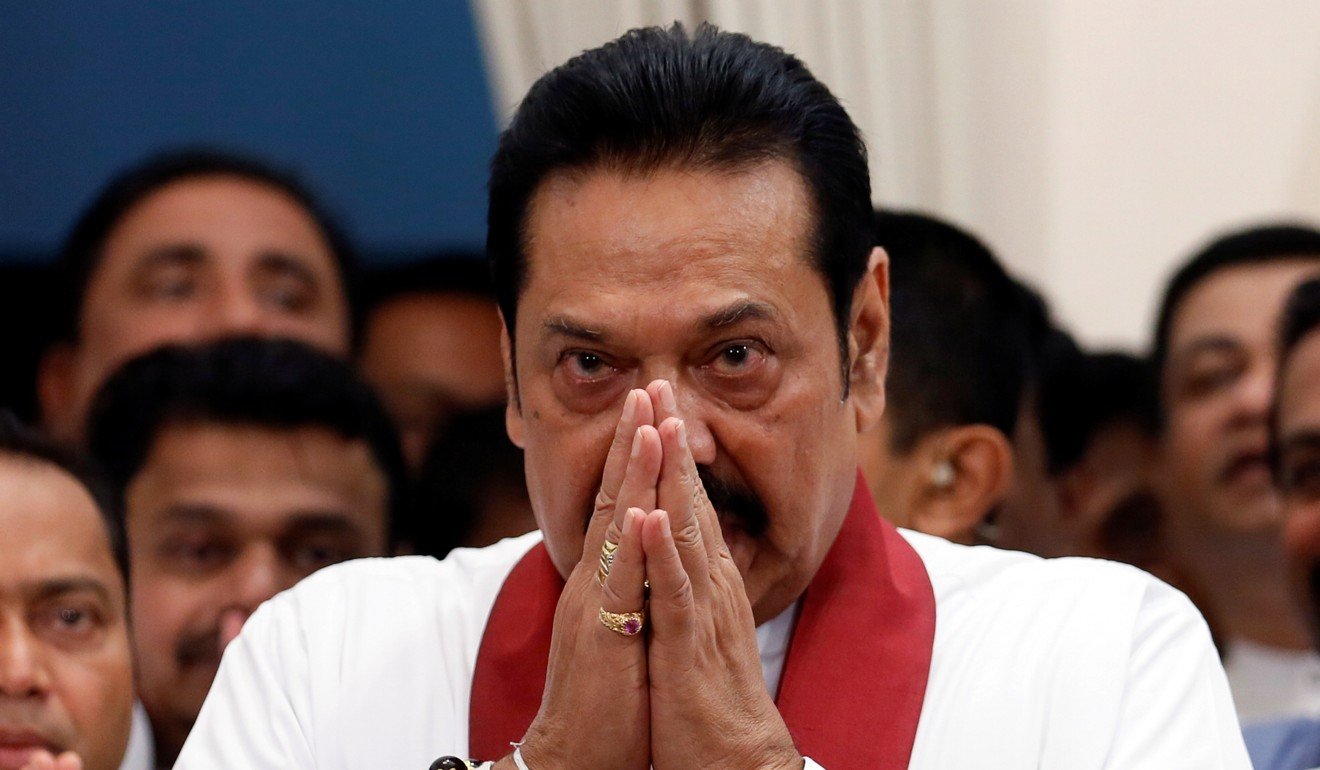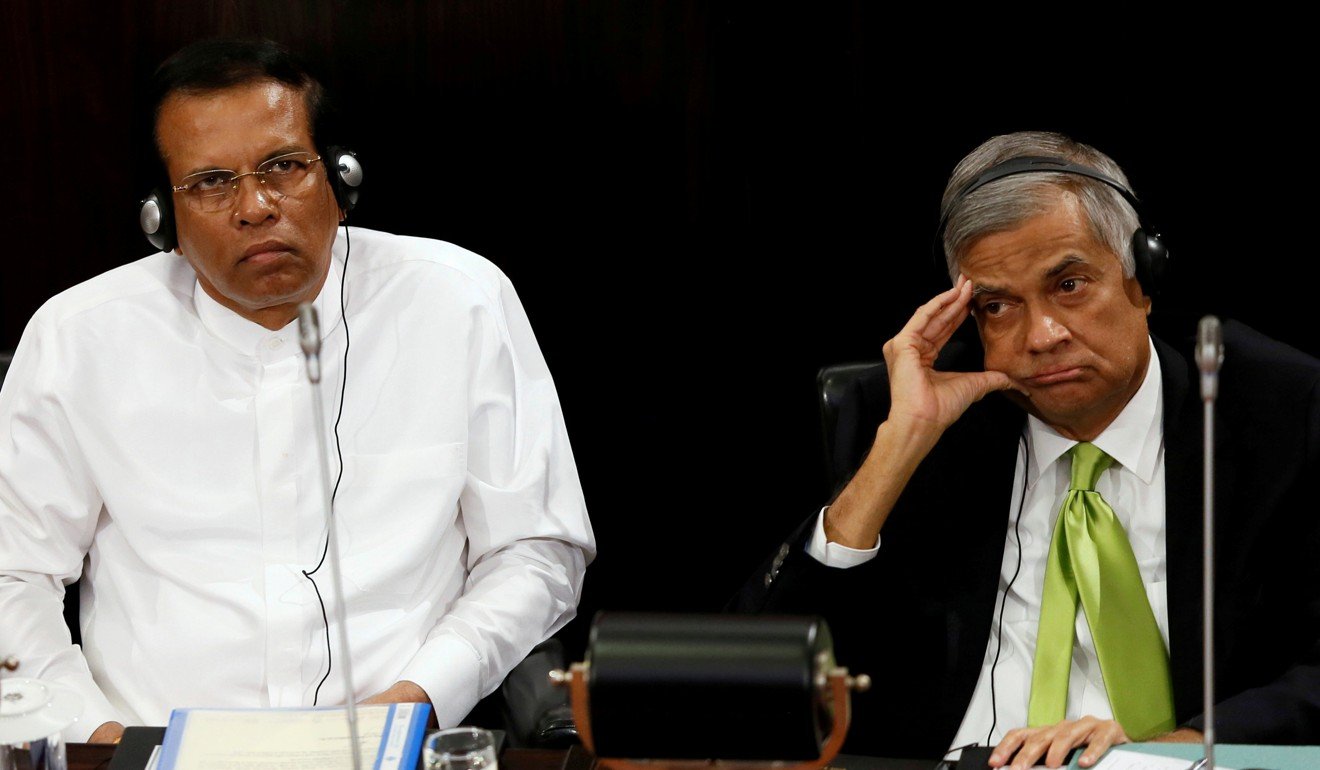
In Sri Lanka, rising Islamic militancy was the proverbial elephant in the room
- For years, the country’s political elite wilfully overlooked a burgeoning extremist problem as they courted the Muslim vote
- Now that hundreds of people have been killed in an atrocity on Easter Sunday, something needs to be done, says Rajpal Abeynayake

Sri Lanka ’s politicians, both from the governing party and the opposition, have found themselves in a dilemma since Easter Sunday’s bloody massacre: how to balance essential security concerns with their need to keep the country’s Muslim minority onside.
The bombings on Sunday, which targeted churches and high-end hotels as well as other sites across the country, claimed more than 250 lives.

They have been linked to extremist fringe group National Thowheed Jamath, which authorities suspect of having international ties. Indeed, Islamic State later claimed responsibility for the attacks – described as some of the deadliest since September 11.
For the ensuing investigation, Sri Lanka has called upon its international allies. The FBI is already working with the government to find the perpetrators and there is even talk of the United States putting boots on the ground.
Such a move would likely prove disastrous – the last time a foreign armed force came to Sri Lanka, in the form of the so-called Indian Peace Keeping Force of 1987, its only effect was to escalate the civil war that was raging at the time and make it “more difficult for Sri Lanka to contain the violence”, as Tamil politician Arun Tambimuttu points out.
Sri Lanka occupies an extremely strategic location that is coveted by many regional and global powers. It is no secret the US wants a friendly government in power here – especially after the testy relationship it had with the administration of former President Mahinda Rajapaksa, under whose watch the long-running civil war was brought to an end.
There are suspicions the US intelligence community knew of a burgeoning radical Islamist movement in eastern Sri Lanka with ties to Wahhabi orthodox clerics and activists – especially as this writer and his colleagues had pointed out such a presence in local newspapers, in articles dating as far back as 2008.

Despite all the gnashing of teeth about “security lapses” and the appalling intelligence failures that took place before the Easter Sunday massacre, the presence of a militant strain of Islamic radicalism in the country’s Eastern province has been the proverbial elephant in the room in Sri Lankan political discourse.
There has been a reluctance to come to terms with this threat because politicians feared alienating the Muslim community, who often play a pivotal role in determining the outcome of Sri Lankan elections due to the fact that they overwhelmingly vote as a bloc in line with a collective decision taken by community leaders.
This has caused politicians of all stripes to ignore the radicalisation taking place in the 300 or so madrassas in the country’s east that are funded by donors based in Saudi Arabia and Qatar, both also US allies.
Herman Gunaratne, author of two books on Sri Lanka’s civil war, says the government will struggle to contain the threat posed by these Islamist radicals, as the communities in which they live are almost completely cut off from the rest of society and nearly impossible for intelligence operatives to infiltrate.
Then there is the fact that the president and prime minister, both of whom are up for re-election before the end of next year, are eyeing the Muslim vote in the interest of their own political survival.

This could even be the reason President Maithripala Sirisena failed to act on the intelligence he had received about an imminent attack earlier this month, according to Tambimuttu, the Tamil politician who represents a constituency in the Eastern province.
In general, however, analysts see the larger problem of Islamist terror in Sri Lanka as being vexed, with many wheels within wheels.
Plans are afoot to build a Saudi-backed sharia university in the country’s east, where there have also been reports of evangelical churches seeking to convert Muslims to Christianity.
Meanwhile, hardline Buddhists who were previously seen as rabble-rousers and instigators of violence against Muslims are now claiming that they were right all along – with some even suggesting clearing Muslim enclaves by settling Sinhalese Buddhists in the Eastern province en masse, a “solution” that almost everyone else finds abhorrent.
The overriding emotions among many at the moment are unease and anxiety – and in the normally very peaceful Muslim community, a state of shocked paralysis.
Given this backdrop, some would no doubt welcome a foreign military presence, despite the obvious negative connotations.
Others wish for a return of Rajapaksa, who is widely credited with defeating the Tamil separatists and bringing an end to the civil war.
The security apparatus carefully nurtured under his watch has been dismantled in the name of “reconciliation”, opposition politicians say. No doubt a considerable swathe of the population would tend to agree with this assessment, given the events of Easter Sunday.
Some have even called for Rajapaksa’s brother Gotabhaya, a retired army officer and former defence secretary who once led the fight against the Tamil separatists, to be returned to power to help defeat the Islamists.
For many opposed to the former administration this is anathema, and symptomatic of an atmosphere of chaos and political uncertainty in which groups such as IS thrive. This much is as true for Sri Lanka as it is for Malaysia, Bangladesh or any other country that the militants might choose to target next. ■
Rajpal Abeynayake is a practising lawyer and former editor-in-chief of The Daily News in Sri Lanka